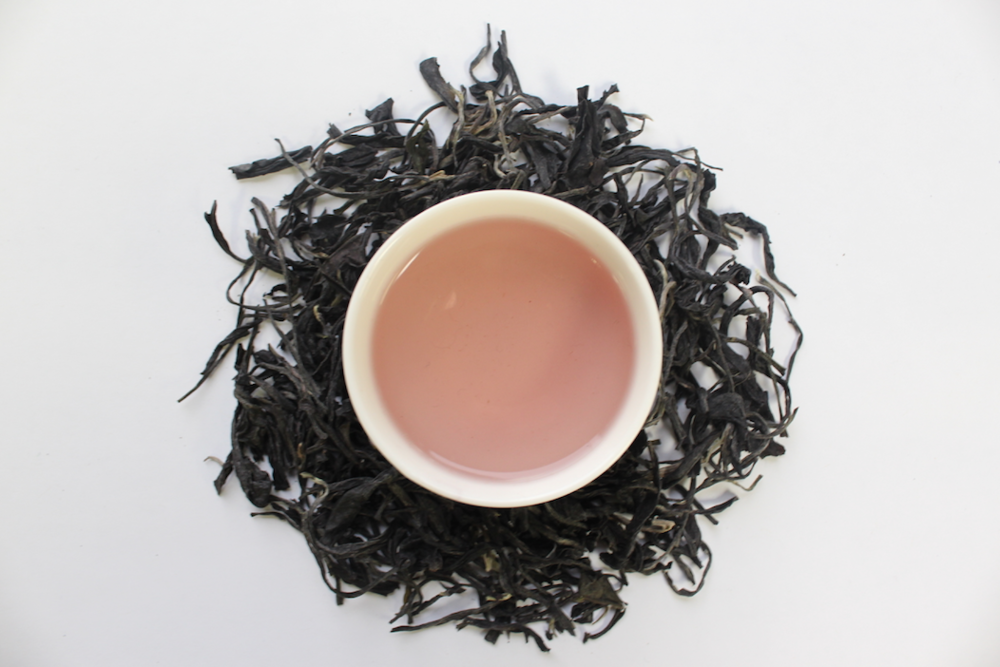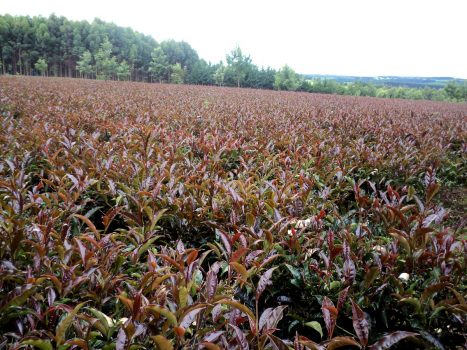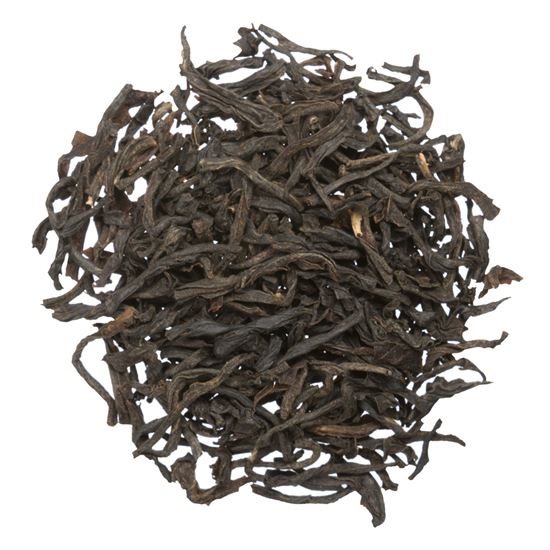What kind of tea does purple tea belong to? Which producing area does Kenyan purple tea taste good? What is the function and effect of purple tea?
What is purple tea? We are all familiar with all kinds of tea, such as black tea, green tea, oolong tea and so on. But have you ever heard of purple tea? Purple tea combines the health characteristics of green tea and black tea, adds new and unique health benefits, and provides farmers with opportunities to increase their income.
So what on earth is purple tea? Like other teas, purple tea originated from tea trees. This is the source of black tea and green tea as we know it. The purple appearance of tea is caused by a unique genetic mutation that produces anthocyanins, which are the same powerful antioxidants found in blueberries. In fact, its content is 1.5%, while blueberry is 1%.
Where does purple tea come from? A small number of wild mutations were initially found in China. However, a public / private partnership has emerged in Kenya to isolate this mutation and produce purple tea on a large scale. It grows between 4500 and 7500 feet above sea level, mostly in the Nandi Mountains of Kenya. The high altitude near the equator leads to higher levels of ultraviolet radiation and causes plants to produce very high levels of antioxidants to protect leaves from damage. Because of its high altitude, purple tea does not use pesticides.

What are the health benefits of purple tea? Anthocyanins have many medicinal properties, especially those known to be beneficial to cardiovascular diseases. It is well known that these antioxidants have the effects of fighting cancer, improving vision, and promoting cholesterol and blood sugar metabolism. At the same time, the content of caffeine is lower than that of black tea. Purple tea also contains more polyphenols, another antioxidant. More than black tea or most green tea (16.5%, 10.1% for black tea and 9.1% for green tea). Like green tea, purple tea contains high levels of another antioxidant, catechin, especially EGCG, a strong antioxidant in green tea. These neuroprotective antioxidants infiltrated the blood-brain barrier and significantly improved the antioxidant capacity of the brain in a study of mice. Purple tea has another secret weapon. Not in any other tea or food. This is a special polyphenol called GHG. Preliminary studies have shown that it can reduce fat weight and thickness, while increasing lean body weight. The researchers believe this is caused by greenhouse gases affecting lipases, which break down fats and make it easier for the body to digest them. It feels good to drink it. The farmers will thank you. Kenya is rich in tea, which is their number one cash crop. However, the price of the main black tea mainly produced in Kenya has shown a downward trend. Either grit your teeth and watch your income fall, or find another way out. With a new niche, Kenya could become a market leader. They seized the opportunity, and then. That's it. Twenty-five years after the emergence of the first hybrid varieties, Kenyan farmers began to increase the production of export products. Best of all, even if this tea has amazing health benefits, it costs only a few dollars more than most teas. In fact, you might think that the price of purple tea will be much higher because it offers unique benefits. Needless to say, by buying purple tea, you are supporting farmers who have waited 25 years to bring the tea to market. What's the taste of purple tea? Purple tea has a pleasant, sweet and forest taste. We used less water than boiling water and soaked the tea for about 3 minutes, almost without astringency. Purple tea itself is darker, but the tea is lighter and purplish. Some people say it has both black and green flavor. We found that it tastes like green tea, with no astringency and no bitter tannins, but it is not grass or plant. Due to the tolerance of nature, this may be a good way for people to improve their health and jump on the trend of tea.
Important Notice :
前街咖啡 FrontStreet Coffee has moved to new addredd:
FrontStreet Coffee Address: 315,Donghua East Road,GuangZhou
Tel:020 38364473
- Prev

What kind of tea does Kenyan purple tea belong to? The reason why Kenya purple tea soup is purple where can I buy authentic Kenya purple tea?
Purple tea, which grows in Kenya, is the only known variety that contains anthocyanins, a flavonoid that makes blueberries and pomegranates purple. The new purple variety was developed by the Kenya Tea Research Foundation (TRFK) 25 years ago, and small-scale Kenyan farmers planted seedlings in 2011. Purple leaf tea is
- Next

What kind of tea is orange white tea? Which black tea of OP, FOP or BOP has more caffeine?
How much caffeine does orange white tea contain? Orange white tea is a very popular black tea, so how much caffeine does orange white tea contain? How much caffeine does it have compared to other teas and caffeinated drinks? What on earth is orange white tea? First of all, we need to know what orange and white is, orange white tea.
Related
- Can lightly roasted coffee beans be used to extract espresso? How finely should you grind high-quality coffee beans to make Italian latte?
- What is the difference between the world's top rose summer coffee and Yejia Shefi? What are the flavor characteristics of Yega Shefi coffee and Panama rose summer?
- The ceremony is full! Starbucks starts to cut the ribbon at a complimentary coffee station?!
- A whole Michelin meal?! Lucky launches the new "Small Butter Apple Crispy Latte"
- Three tips for adjusting espresso on rainy days! Quickly find the right water temperature, powder, and grinding ratio for espresso!
- How much hot water does it take to brew hanging ear coffee? How does it taste best? Can hot water from the water dispenser be used to make ear drip coffee?
- What grade does Jamaica Blue Mountain No. 1 coffee belong to and how to drink it better? What is the highest grade of Blue Mountain coffee for coffee aristocrats?
- What are the flavor characteristics of the world-famous coffee Blue Mountain No. 1 Golden Mantelin? What are the characteristics of deep-roasted bitter coffee?
- Can I make coffee a second time in an Italian hand-brewed mocha pot? Why can't coffee be brewed several times like tea leaves?
- Hand-brewed coffee flows with a knife and a tornado. How to brew it? What is the proportion of grinding water and water temperature divided into?

